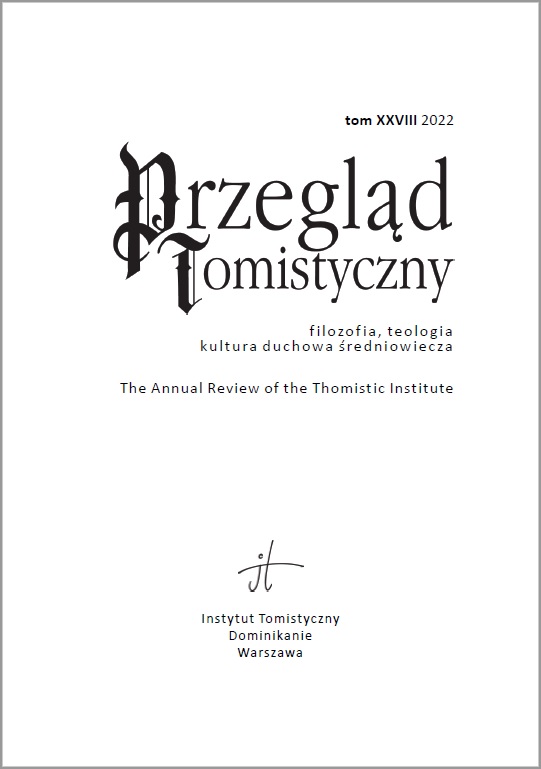TOMASZ GAŁUSZKA, O.P., An Inquistor John of Schwenkenfeld, the Beguines of Świdnica and Master Eckhart’s Doctrine. Research on Polish Dominicans’ Intellectual Culture in the Early 14th century

Volume XXVIII: 2022
Philosophy — Theology— Spiritual Culture of the Middle Ages
ISSN 0860-0015
e-ISSN 2544-1000
SUMMARY
The paper discusses three theological questions mentioned in the Latin protocol from the trial of the Beguines of Świdnica in 1332. The trial was led by the Polish inquisitor John of Schwenkenfeld. These questions are closely related to the teaching of German theologian and mystic Master Eckhart that were widespread among the Beguines. The first of these questions concerned the idea condemned by the pope John XXII in the 13th article of the bull In agro dominico (March 27th, 1329), namely the oneness of God and man, expressed in the most radical way through joint creation of “heaven and earth”. The fact that the Polish inquisitor had access either to the copy of the bull or at least to the list of condemned articles confirms quick reception of this document in the Gniezno Archdiocese. The second question concerned the interpretation of the Biblical passage (John 4.23) and the correct understanding of worshipping God “in spirit and in truth”. The Beguines were said to preach – following Eckhart – that the true worship is done in complete silence and without any words. The third question concerns the concepts that are the most recognizable and omnipresent in the works of Eckhart, namely those of the spark of the soul (ein vünkelin der sêle; scintilla animae) and od the complete detachment (Abgeschiedenheit). These motives are mentioned in the protocols from the interrogations of two local Beguines. While editing this part of the protocols, the inquisitor used either Eckhart’s work Buch der göttlichen Tröstung (LiberBenedictus), or the proceedings from the Cologne trial against Eckhart that took place in 1326. As it turns out, Master Eckhart’s case reverberated around the whole Dominican Order – the protocol by the Polish inquisitor from the interrogation of the Beguines of Świdnica is one of the earliest and hitherto unknown witnesses to this fact.
